石榴籽·同心圆 | 撒拉族:“许乎”——绽放的“石榴花”
【编者按】1994年,中央第三次西藏工作座谈会拉开了对口支援西藏的帷幕,今年是对口支援西藏工作30年。在中国56个民族中,有这样一个与藏族人民“世代修好”的民族——撒拉族。千百年来,撒拉先民定居并扎根于青藏高原,各民族之间世代传承着一种跨族交往关系——“许乎”。
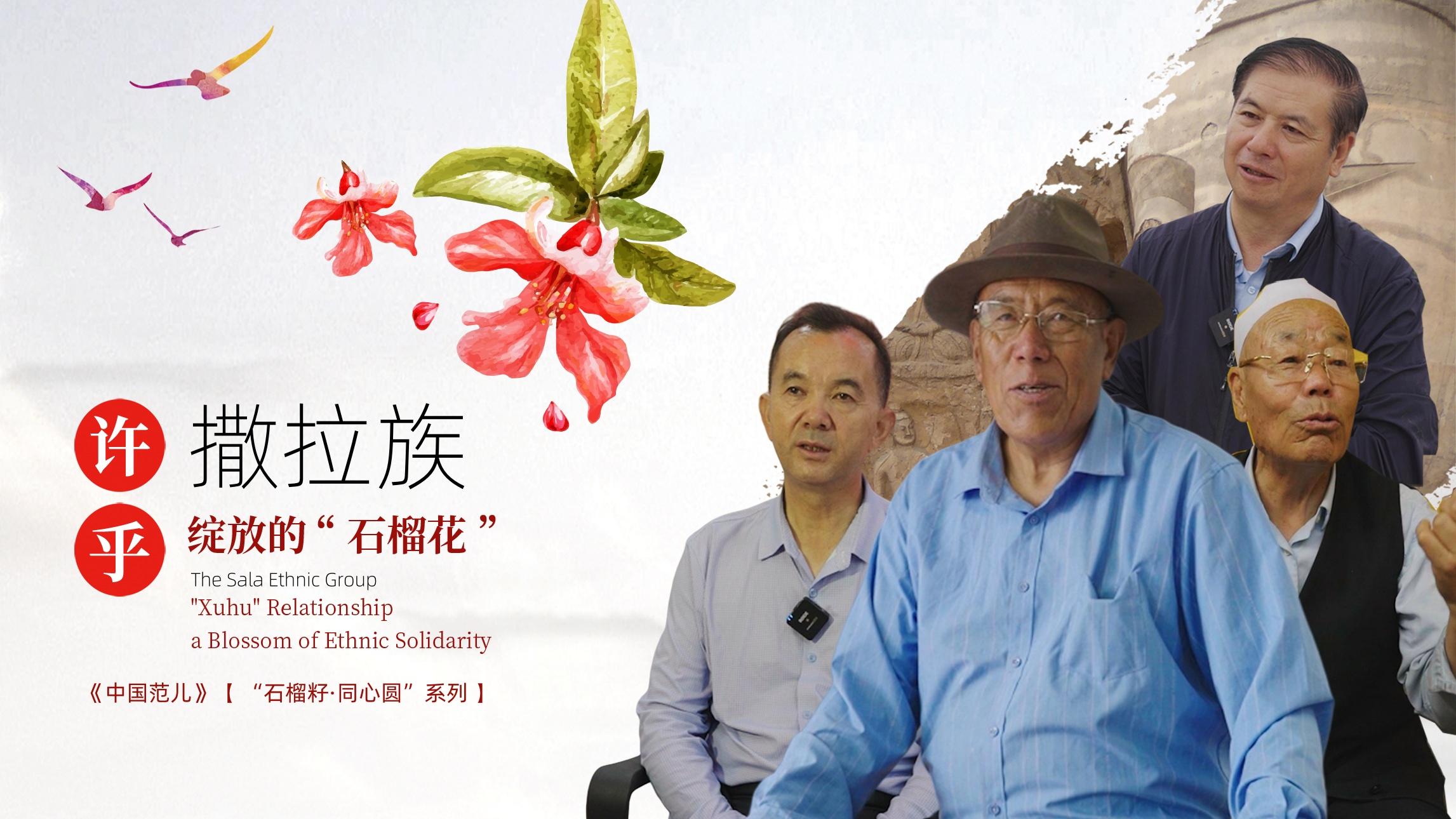
“难怪,老红军邵明先后来跟我说,撒拉人,是真正的刚强民族,我从没见过他们悲观失望的时候,总说一切都会有最好的安排。”——摘自《红星照耀黄河》
"No wonder, the Red Army veteran Shao Mingxian has told me that the Salar is a truly resilient ethnic group. I have never seen them in a state of pessimism or disappointment--they always believe that everything will end on a positive note." -- Quote from book Red Star Over the Yellow River
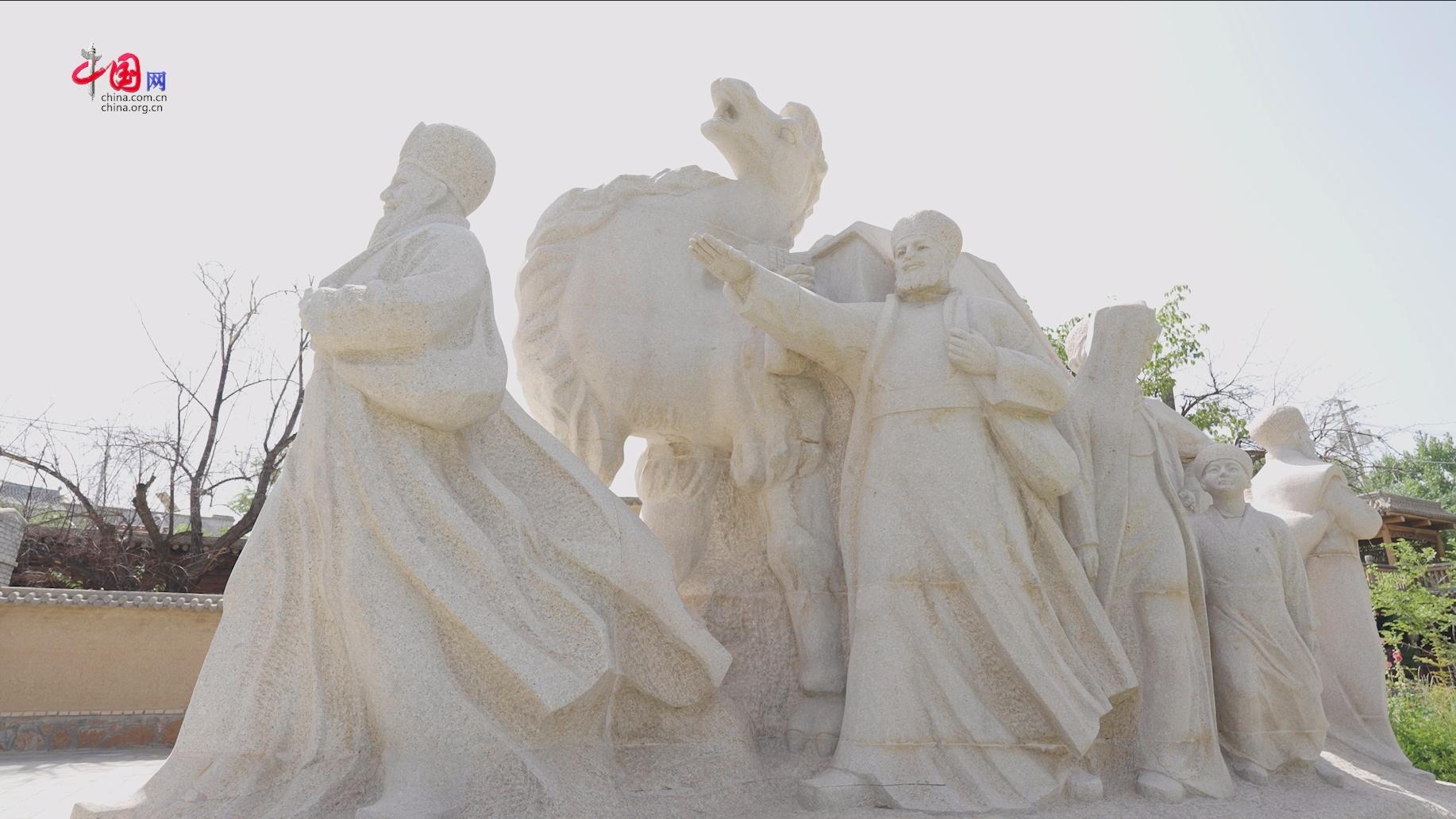
有这样一个部落,几百年前,从遥远的中亚启程,一路东迁……驼铃声声,沙尘漫漫,最终扎根于青藏高原,这就是撒拉族。
Centuries ago, there was a tribe that embarked on an eastward journey from remote Central Asia. They traversed the vast lands with the sound of camel bells and amidst the swirling sands. Eventually, they settled in the Qinghai-Xizang Plateau, and this tribe is known as the Salaethnic group.
撒拉族祖先定居于青海循化后,与周围藏、回、汉、蒙古等族长期杂居融合、繁衍,逐步形成了一个稳定的民族共同体。长久以来,各民族之间世代传承着一种跨族交往关系——“许乎”。
After the ancestors of the Salaethnic group settled in Xunhua, now a Sala autonomous county in west China's Qinghai Province, they coexisted and integrated with neighboring ethnic groups such as Tibetan, Hui, Han, and Mongolian. Over time, they gradually formed a stable coexisting ethnic community. For generations, there has been a cross-ethnic relationship known as "Xuhu" that has been passed down among various ethnic groups.
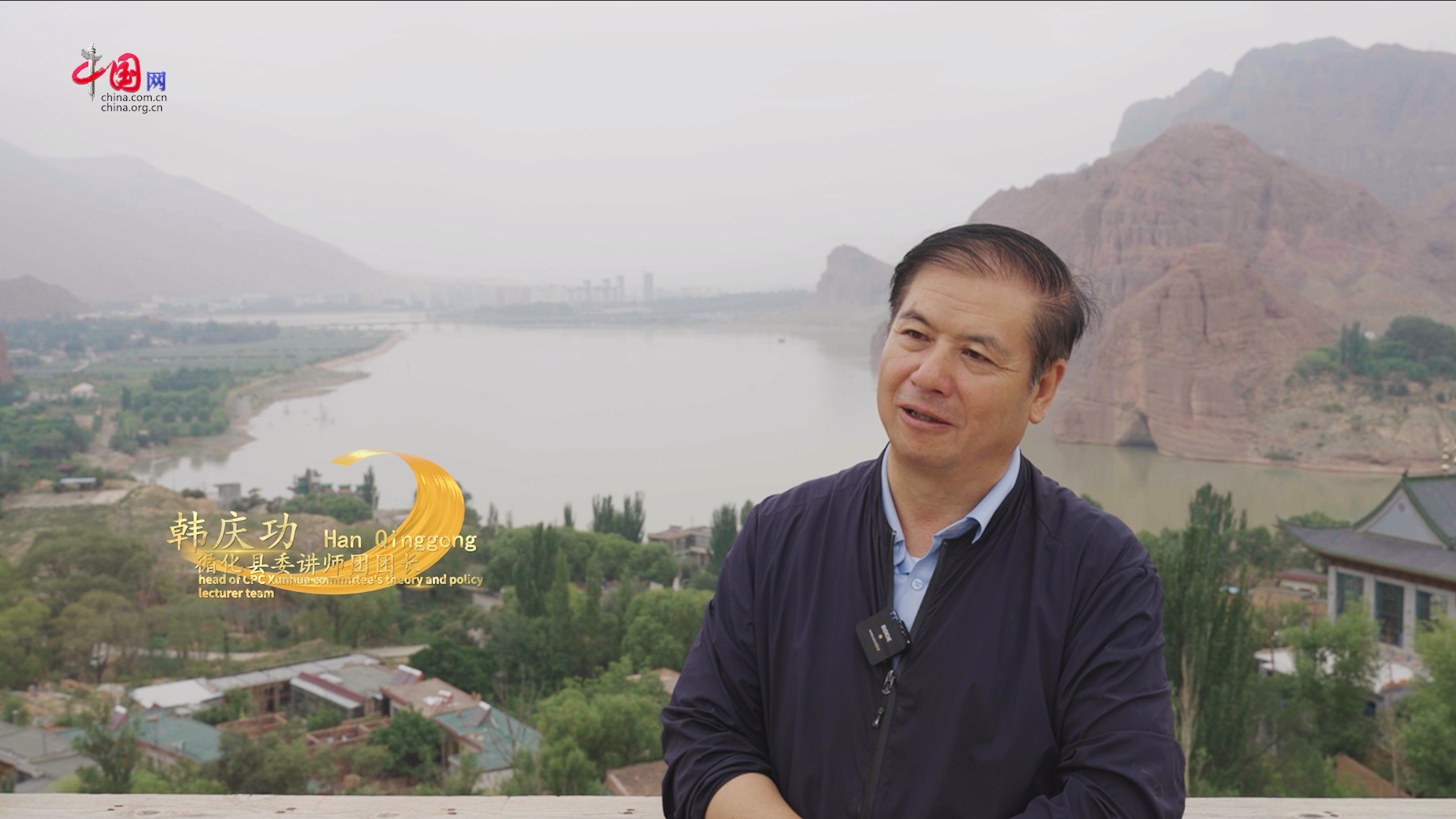
韩庆功(循化县委讲师团团长)
Han Qinggong, head of CPC Xunhua committee's theory and policy lecturer team
韩庆功:你一定要生存下来,没别的地方去了。那一定要生存下来你要怎么办,最后他们就想到,向别的民族靠拢,最先靠拢的就是藏族。我觉得这是一种文化上的智慧。后来呢,两个民族之间生活上交往、经济上交流、文化上交融,就形成了今天我们所说的“许乎文化(关系)”。
Han Qinggong: You must survive, as there is nowhere else to go. In order to ensure their survival, they came up with the idea of approaching other ethnic groups, with the Tibetans being the first choice. I believe this is a cultural wisdom. As time went on, there were interactions in daily life, economic exchanges, and cultural integration between the two ethnic groups, which eventually formed a relationship what we now call "Xuhu."
许乎,藏语译音,意思是值得信托的朋友或交往,语含亲切。
Xuhu, a transliteration from Tibetan, means a trusted friend or relationship, connoting a sense of warmth and closeness.
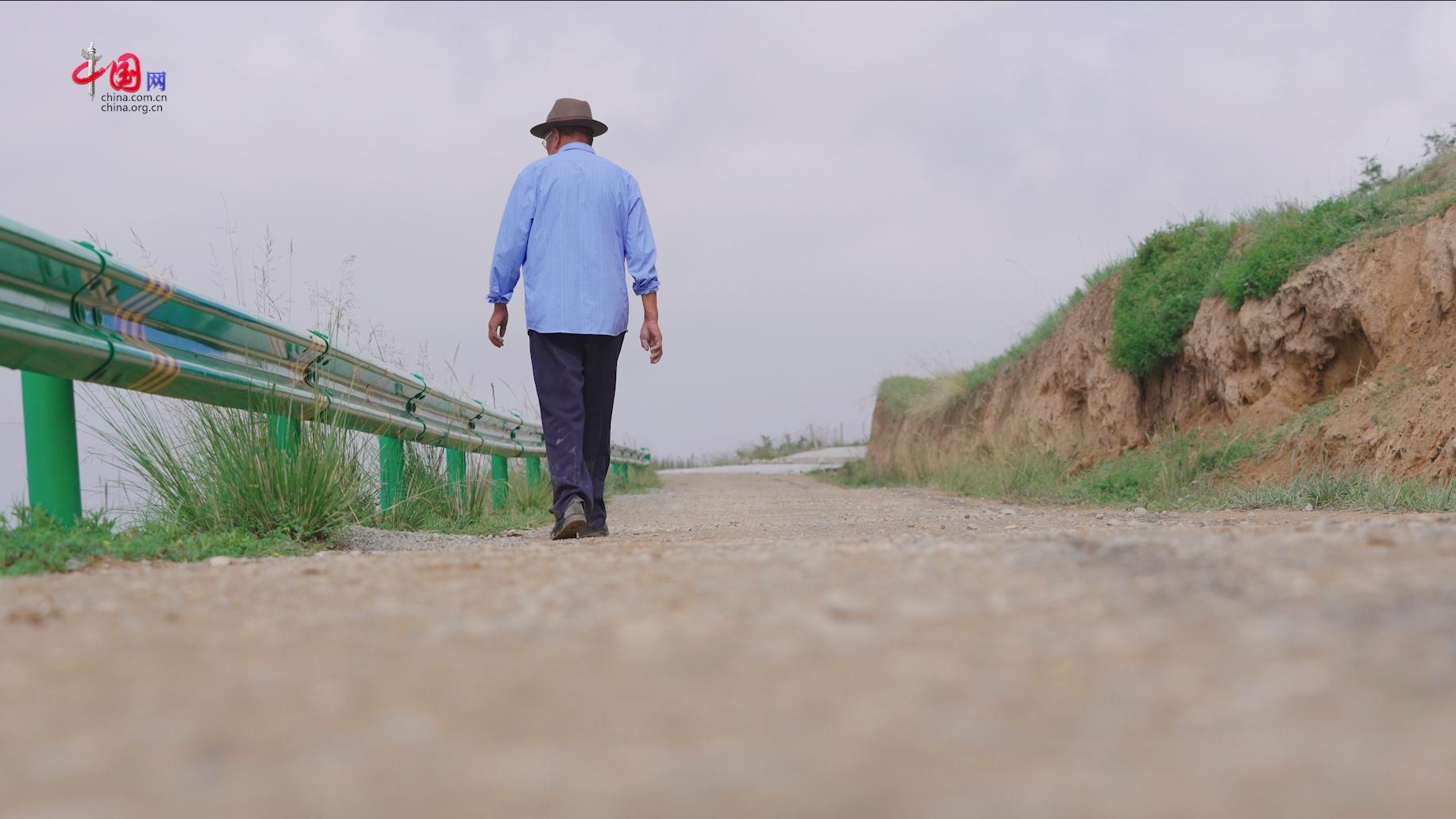
来塘村是一个撒拉族村落,山路崎岖且常有塌方,就是在这样一个偏僻而又语言不通的环境里,一位藏族教师却用担当和爱心坚守了30多年,延续着千百年来亲如一家的“许乎”关系。
Laitang Village is a Sala village, nestled in the rugged mountains where landslides are frequent. In such a remote and linguistically isolated environment, a Tibetan teacher has dedicated himself with responsibility and love for over 30 years, upholding the family-like"Xuhu" relationship that has lasted for centuries.
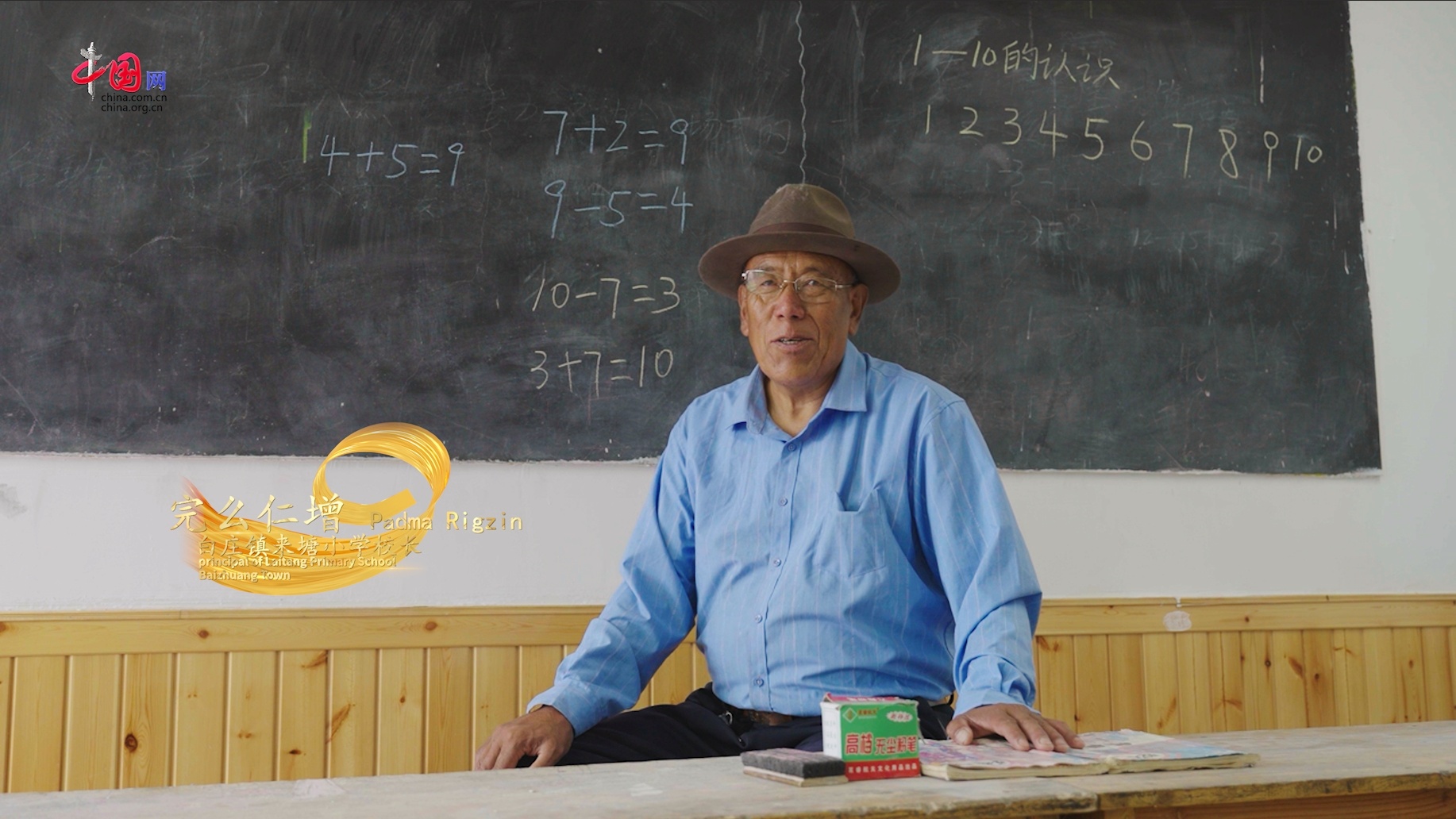
完么仁增(白庄镇来塘小学校长)
Padma Rigzin, principal of Laitang Primary School, Baizhuang Town
完么仁增:我叫完么仁增,是道帏乡牙木村人,我是一个藏族老师。我90年4月份来的时候,我不懂撒拉语。然后,两年时间慢慢地,跟村委会书记学了一点撒拉语。两年过了以后,再问撒拉话我基本知道,现在我能说90%的撒拉语,我能说能听。最近两年,我们来塘村搬迁到了县城,现在只(剩)两三户人家,目前只有四个学生。我是一个藏族,我的学生、这个村子都是撒拉族,但是我的撒拉族学生和我这个老师的关系非常好。
My name is Padma Rigzin, and I am from Yamu Village in Daowei Township. I am a Tibetan teacher. When I arrived here in April 1990, I did not understand the Salar language. However, over the course of two years, I gradually learned some Salar from the village committee secretary. After two years, I became proficient in speaking and understanding about 90 percent of the language. In the past two years, our village has relocated to the county from the Laitang village, where there are only two or three households remaining, with currently only four students. I am a Tibetan, and both my students and this village are Salar. Despite this, the relationship between my Salar students and me is very good.
今年,来塘村最后几户家庭将全部搬迁到县城新家。完么仁增说,只要有一个学生,他就会坚守这所来塘学校。
This year, the remaining few households in Laitang Village will all be relocated to their new homes in the county. Padma Rigzin said that as long as there is one student, he will remain committed to this village school.
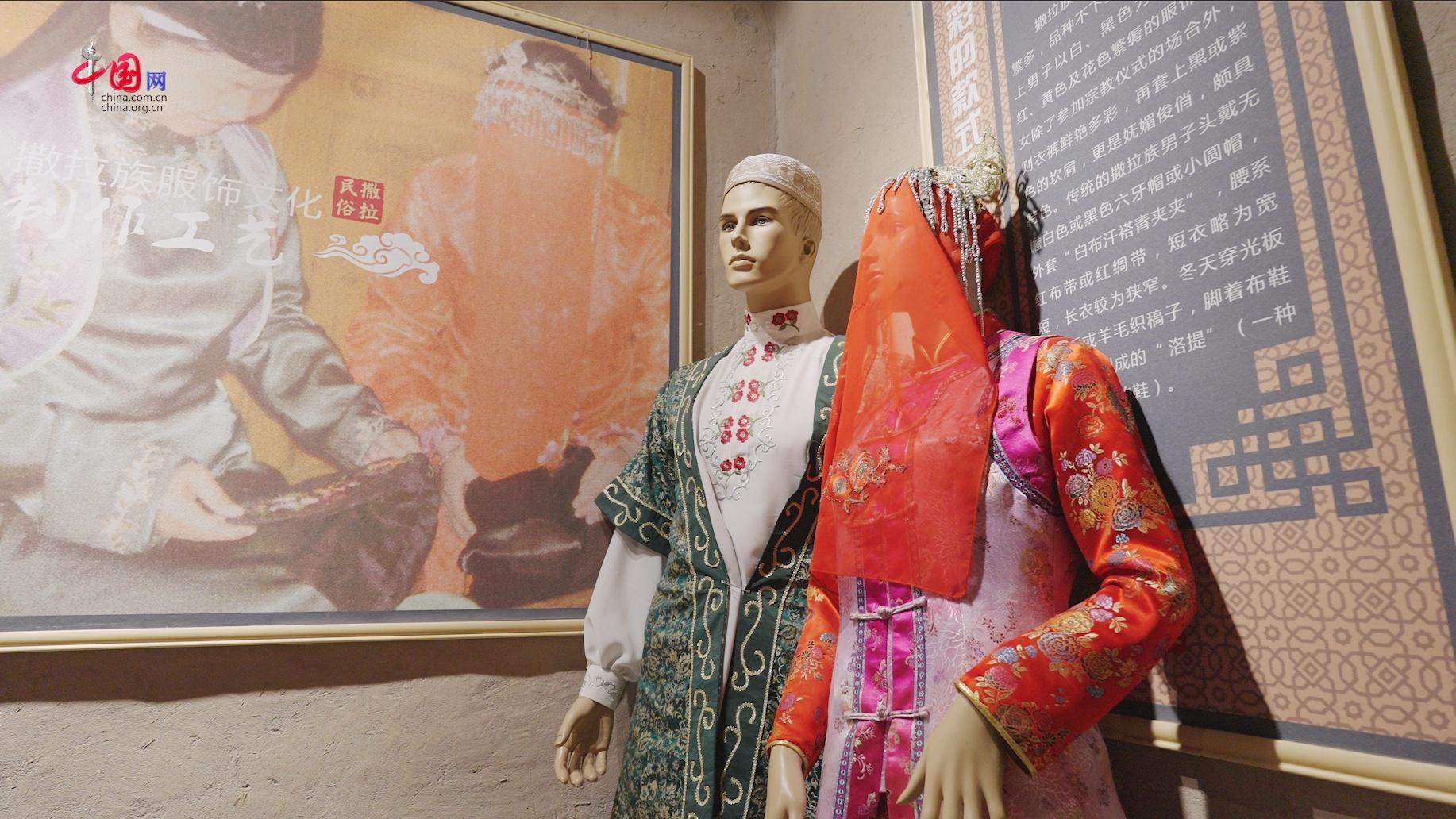
多民族生活在同一片土地上,使撒拉族的文化充满了“融合”,婚礼、服饰、篱笆楼,都有着融合的色彩。风格迥异的清真寺耸立于街头,不同信仰因“许乎”关系走到一起。
The coexistence of multiple ethnic groups in the same land has made the Salar culture full of integration. Their traditional weddings, costumes, and houses all exhibit cultural fusion. Diverse styles of mosques stand tall on the streets, and different faiths coexist due to the "Xuhu" relationship.
每逢藏族过新年,撒拉族会到藏族家里串门拜年。撒拉族过古尔邦节,藏族则到撒拉族家里道贺,建立了你来我往的传统友谊。
During the Tibetan New Year, the Salar would visit Tibetan households to exchange New Year greetings. Similarly, during the Salar's Corban Festival, Tibetans would visit Salar households to offer congratulations, establishing a tradition of mutual friendship and interaction.
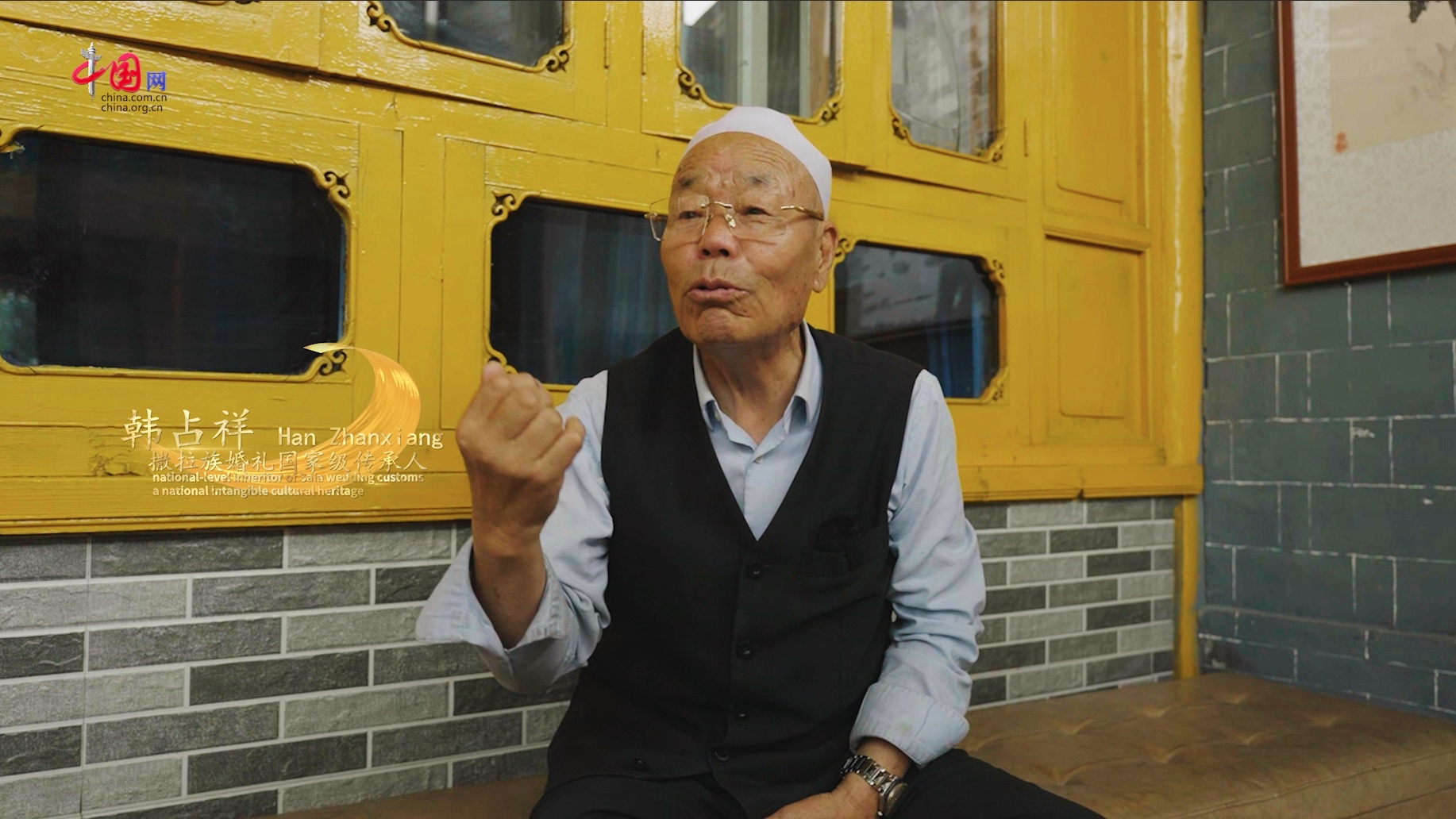
韩占祥(“撒拉族婚礼”国家级传承人)
Han Zhanxiang, national-level inheritor of Sala wedding customs, a national intangible cultural heritage
韩占祥:撒拉族跟藏族已经成为一家人了。咱们“许乎文化(关系)”涉及到很多方面的问题。你比如说,咱们每年要封斋,封一个月的斋,我们一天不吃饭。藏族的熟人们来了后,给他倒茶他不喝,他说:“你们封斋,我们不喝。”彼此之间的尊重,尊敬尊重的关系,自觉不自觉地形成了两个民族的统一文化。
Han Zhanxiang: The Sala and Tibetan ethnic groups have become like one family. Our "Xuhu" relationship involves many aspects. For example, every year we observe a month-long fasting period during which we do not eat during the day. When Tibetan acquaintances come, we offer them tea, but they refuse, saying, "We will not drink when you are fasting." This mutual respect has unconsciously formed an inclusive culture between the two ethnic groups.
撒拉族老人们说:“生活中如果少了藏语,少了与‘许乎’的交往,就如奶茶缺了盐一样,一下子就寡淡乏味了。”
The Sala elders have a saying: "If our lives were without the Tibetan language and without interaction with 'Xuhu', it would be like having butter tea without salt -- suddenly bland and tasteless."
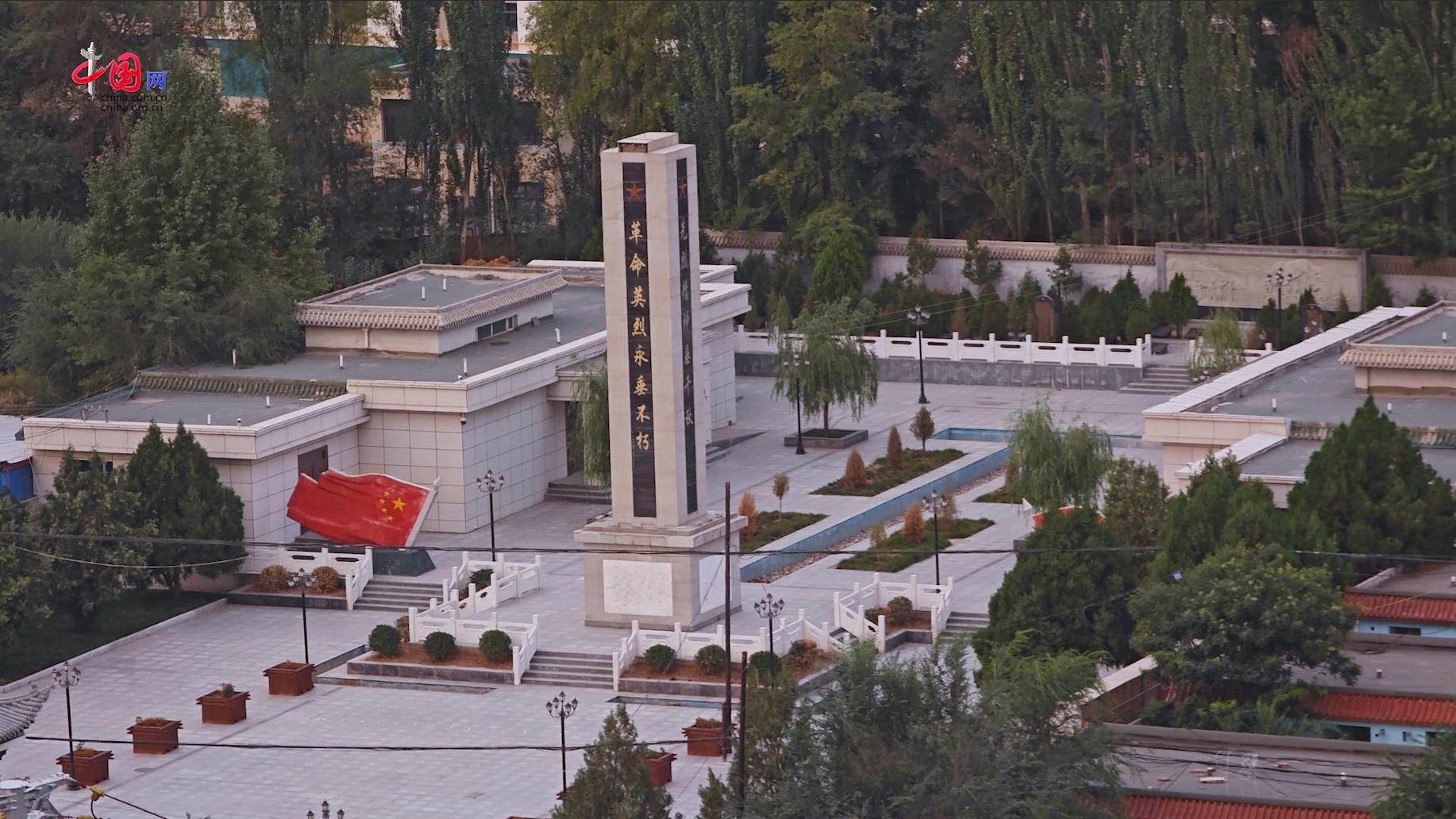
在循化县城东,有一座革命烈士陵园,纪念塔浮雕上雕刻着“英雄救英雄”的光辉事迹。
In the east of Xunhua lies a revolutionary martyrs' cemetery, where a memorial tower is adorned with reliefs depicting the glorious deeds of “heroes saving heroes.”

马明全(循化县退役军人事务局西路军爱国主义教育中心主任)
Ma Mingquan, director of the West Route Army of Chinese Workers' and Peasants' Red Army patriotism education center, veterans affairs bureau of Xunhua
马明全:1949年循化解放的时候,撒拉族和回族主要聚居在黄河沿岸。解放军要渡过黄河,挺进青海(西宁)的时候,撒拉族当时的水手,他们的水性特别好,通过羊皮筏子、木头筏子,或者是个人游泳等各种方式,帮助我们的中国人民解放军渡过黄河。
Ma Mingquan: In 1949, when Xunhua was liberated, the Sala and Hui ethnic groups primarily resided along the Yellow River. As the Chinese People's Liberation Army (PLA) advanced towards Qinghai (Xining) and needed to cross the Yellow River, the Salar, who were skilled sailors at the time, used various methods such as sheepskin rafts, wooden rafts, and personal swimming to assist the PLA in crossing the river.
1954年,循化县改称“循化撒拉族自治县”,撒拉族人民终于拥有了管理本民族内部事务的权利。撒拉族先民从中亚迁徙到循化,一路颠沛流离,到达循化时人数极少,但骨子中乐善好施、友好睦邻的传统让这支“部落”得以成为中华民族大家庭中的一员。
In 1954, Xunhua County was renamed Xunhua Sala Autonomous County, granting the Salar the autonomy to manage internal affairs of their own ethnic group. The ancestors of the Sala migrated from Central Asia to Xunhua with a small population left after going through a lot of hardships along the way. However, their inherent tradition of benevolence, friendliness, and good neighborliness allowed this "tribe" to become a member of the large family of 56 Chinese ethnic groups.
韩庆功:按一般民族发展历程来看,像撒拉族这样一个弱小民族,顶多维持三四百年就没有了。但是非常“奇怪”的是,撒拉族居然没有消亡,而且一直存活到今天,而且活得很好,他居然跟上了中华民族伟大复兴的历史进程,完成了第一个百年目标,而且提前完成了,2017的时候,全面建成了小康社会。那么如何走好未来的路?这是我们必须要思考的一个问题。我就想出了这么四句话,一个是拥护中国共产党,第二句话是热爱伟大祖国,第三句话是建设美好家园,第四句话是追求幸福生活。
Han Qinggong: Looking at the general course of ethnic group development, a small ethnic group like Sala would typically only survive for three or four hundred years at most. However, it is quite remarkable that the Salar people have not only survived but also thrived. They have actively participated in the historical process of the great rejuvenation of the Chinese nation, achieving the first centennial goal ahead of schedule by fully building a moderately prosperous society in 2017. So, how can we continue the path to a better future? This is a question we must ponder. I have come up with four aspects: first, supporting the Communist Party of China; second, loving our great motherland; third, building a beautiful homeland; and fourth, pursuing a happy life.
“许乎”,犹如高原大地上的另一种黄河涛声,也是难以割舍的一缕珍贵乡愁,更是一朵民族团结绽放的“石榴花”。
"Xuhu," like the roaring of the Yellow River on the plateau, is a precious nostalgia that is hard to let go of. It is also a blooming"pomegranate flower" on the soil of ethnic solidarity.
推荐阅读:大山大河孕育出的中华民族——循化故事










